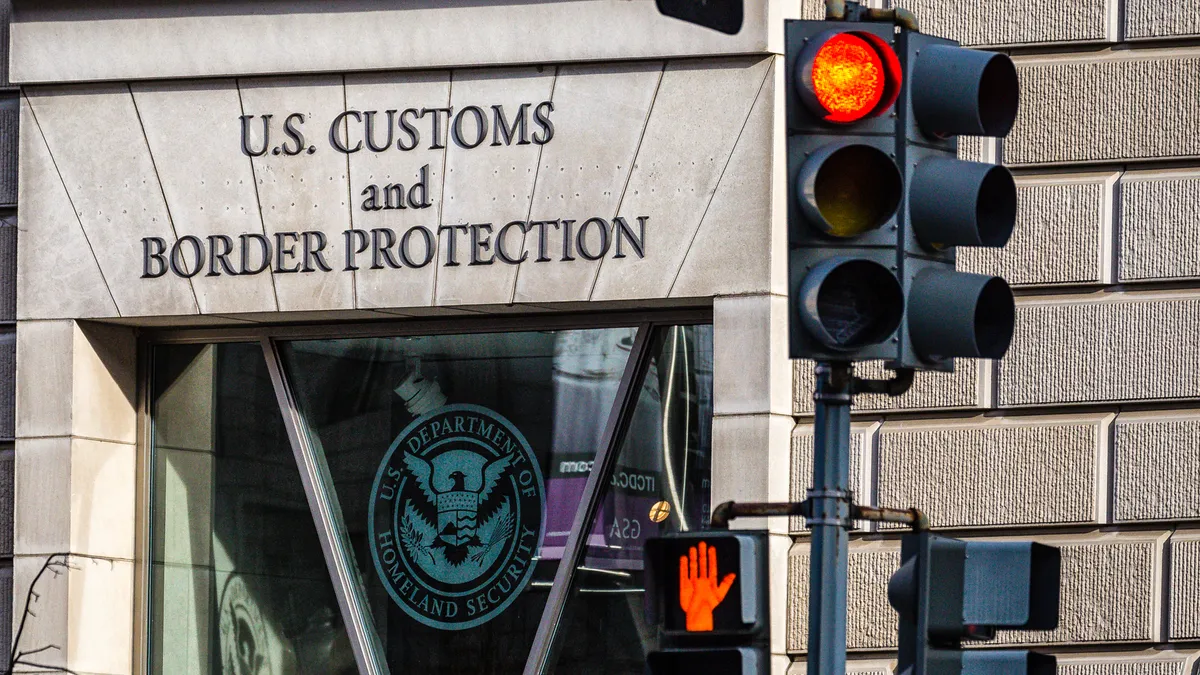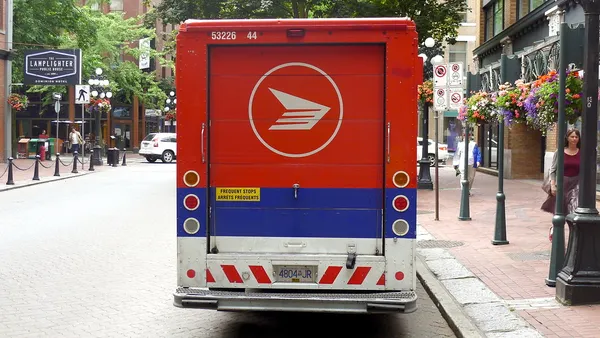U.S. Customs and Border Protection is preparing to strengthen its data collection requirements for low-cost goods entering the country, according to proposed rule changes published Tuesday.
The agency said the changes aim to target high-risk imports claiming the de minimis exemption more effectively, helping it boost enforcement to stop illegal drugs, counterfeit goods and other illicit products from entering the U.S. Use of the de minimis exemption, which allows shipments of less than $800 to avoid import duties and taxes, has surged in recent years.
"This data will reduce the burden for CBP officers who process these large volumes of shipments, leading to more accurate targeting," CBP said in an accompanied news release. “As a result, CBP resources will be better focused on accurately identifying and interdicting violative shipments."
Through the planned changes, CBP aims to combine aspects of two pilot programs focused on import transparency — the Entry Type 86 Test and the Section 321 Data Pilot — to create an alternative method for bringing low-cost shipments into the U.S. Known as the "enhanced entry process,” the proposal would end the Entry Type 86 Test once finalized.
The new enhanced entry process would be required for de minimis-eligible goods subject to data requirements from other federal agencies. It features a similar electronic submission method to what the Entry Type 86 Test offered for importers, along with "a selection of the most useful data elements tested in the Section 321 Data Pilot," per the proposal.
The following information would be required for all enhanced entry shipments:
- Clearance tracing identification number
- Country of shipment
- Tariff classification numbers, with certain exceptions
- One data element that verifies the contents of the shipment, such as the URL of the product listing or a picture of the product
Additional information would also be needed, if applicable to the shipment:
- The names and addresses of the purchaser and seller
- Any information required by other agencies
- The advertised retail product description
- The marketplace name and website or phone number
Those importing low-cost merchandise not regulated by other federal agencies, excluding mail importations, and what CBP considers "bona-fide gifts" can use the current de minimis exemption approach, which would be renamed the "basic entry process." However, these importers would also need to provide the names and addresses of the person exempted from duty payment and the end recipient of the merchandise.
Members of the public will have until March 17 to submit a comment on the proposed rule change. The president may review the draft of the final rule before it's published and implemented, Tim Manning, a former White House supply chain official, said in November.
The announcement is the first of two rule change proposals stemming from the Biden-Harris Administration's September plan to curb de minimis abuse, as pressure mounts to reform the exemption. Another proposal on de minimis enforcement reform is slated to be filed in the coming days, according to the news release.
“There is still more to be done," Pete R. Flores, CBP senior official performing the duties of the commissioner, said in the release. "CBP will continue to innovate within our current authorities, and we urge the private sector to maintain their vigilance. To achieve comprehensive de minimis reform and trade modernization, we urgently need statutory updates.”















